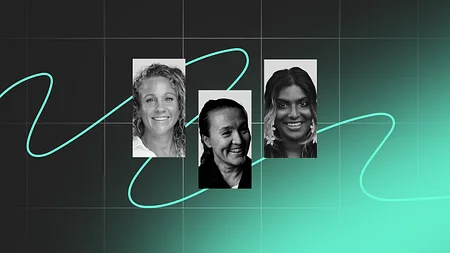Forget agile, ethics is the new battleground

I was once told by a very senior guy at a global bank that my attempts to create impact were ‘a bit socialist’. This statement represents an inter-generational misalignment on the expected role of financial services in society.
This is taken from our Unfiltered newsletter. Subscribe now for a no BS, uncensored analysis of fintech news and hot topics delivered to your inbox each fortnight.
In general, neobanks have been much better at rectifying this than traditional banking institutions. In fact, this gives them a competitive advantage - today, neobanks are winning on agility and ethics.
Dealing with the ‘weight of history’
Neobanks lack the historical baggage of their incumbent rivals. Their social impact policies are much cleaner because they don't feel the need to overcompensate for historic bad practice. They are untarnished by the financial crisis of 2008 and other scandals. In fact, many were established as a direct result of these crises. See the very first line of Starling Bank’s ethical statement: ‘Starling Bank grew out of a desire to create a new kind of bank and to make banking more inclusive by putting customer needs first’.
It’s not simply legacy infrastructure which holds traditional banks back, it is the weight of history. Neobanks have the option of building their ethics from scratch, traditional players do not. There’s a big difference between being net carbon zero by 2050 and being net zero from the get-go.
Talking a good game without walking the walk
Part of the issue here is that traditional banks, in my experience, often don't know how to talk about impact, or feel a little uncomfortable doing so. There is a tendency here to overthink social impact policies, making them convoluted and clunky. Seriously - compare the brevity of Monzo to a more traditional player.
Clarity and precision is more important than trying to do everything. When it comes to corporate social impact, words have to be backed up by meaningful impact. The more thinly you spread yourself, the less achievable this is. Poorly conceived and articulated social initiatives are actually more harmful than beneficial to a corporate organisation’s image.
The changing role of FS in society
As our co-founder Simon regularly reminds me, ‘finance touches everything’ - if we can change the fabric of financial services, we can make the world a better place.
Understanding who is responsible for solving social problems has changed over time. The traditional viewpoint of corporations as solely profit maximising entities is more and more dated, whilst the need for a longer-term view that balances both societal and business goals is becoming more accepted. As many commentators highlight: acting responsibly is no longer a choice. This is also good business as, in many cases, the barriers to sustainable economic growth are increasingly ‘social’ in nature.
Corporations are often seen as the cause of, rather than the solution to, social problems. This is not without foundation. For example, launching green initiatives is one thing, but when another part of the bank is funding coal extraction, you have a problem. Historic activities often take time and will to decommission, which leads to contradictions between the social impact policy and the activities of the organisation.
Corporations are often seen as the cause of, rather than the solution to, social problems.
In theoretical terms, these contradictions are called ‘dialectics.’ Dialectics are a solid basis for cultural change. The pressure to have a meaningful impact should, in theory, lead to bad practices being dropped across the business. However, the process is slow and, as a result, traditional players often feel the weight of expectation.
By contrast, neobanks have been launched in a time where impact and ‘doing no harm’ is the expectation. They’ve been able to create organisations whose practices fit modern social attitudes.
To help accelerate transformation, it is important for traditional organisations to move from Corporate Social Responsibility (CSR) towards Corporate Social Innovation (CSI).
The move from CSR to CSI
Corporations have employed a variety of methods to deal with increasing pressure to act responsibly. For many years, CSR was dominant. However, it was rightly contested as a strategic ‘add-on’ rather than an initiative in its own right, and the term suffered irreparable damage. Companies realised people needed more than money to solve their problems - they needed help, too. Enter, CSI.
In a nutshell, CSI is about integrating social impact with the day-to-day operation of the organisation. The mechanics of CSI rely on innovative and socially conscious employees to drive them - social intrapreneurs. Structurally, incumbent organisations are hostile towards social intrapreneurship. Again, neobanks have the edge on this one. Their lack of baggage means they can adjust to social change with more agility.
My unfiltered opinion
Neobanks have an ethical edge by virtue of when, and how, they were born. Traditional players have an edge on trust and security, but this will give way to ethical concerns in the near future. Therefore, approaching social impact in the right way is mission-critical for traditional financial institutions. A move away from CSR to a more integrated model, CSI, is necessary. The long term benefits far outweigh the short term pain. Being ethical is no longer a nicety - it is your license to trade.
It will allow us to change the fabric of financial services and build a better world, together.




